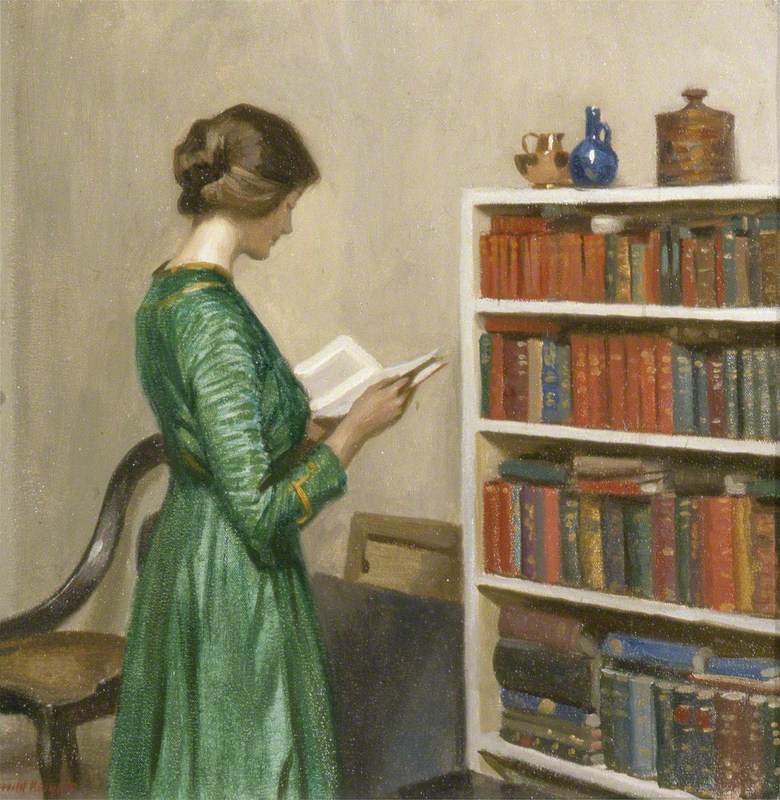Tuesday
I have good news to report of a personal nature: Quoir, a boutique literary agency that produces interesting books on spiritual matters and classical texts, has agreed to publish the book I’ve been working on for the past 15 years. Or rather, the book I’ve been working on all my life, although I just started writing it in the early part of the century.
Longtime readers of this blog will have some inkling of what it’s about since I’ve periodically foisted chapter rough drafts upon you all. If I get a polished manuscript to Quoir before the end of the year—which will be no problem—they think it could appear by next summer or fall.
The publishers asked whether I am open to changing the title, which I certainly am. I’ve been experimenting with several and would love your opinion of the following (and feel free to send in other possibilities):
–Better Living through Literature: How Books Shape Our Lives and (Sometimes) Change History
–Better Living through Beowulf: How Great Books Can Change Your Life
–Unacknowledged Legislators: How Poets Change Our Lives
*Percy Shelley once declared that “poets are the unacknowledged legislators of the world,” which is where this title comes from.
Because publishers (for good reasons) like authors to have “elevator descriptions” (can you interest someone in your book during the brief course of an elevator ride?), I came up with the following:
–the book surveys what the great thinkers, from Plato to contemporary neuroscience, have said about literature’s power to change lives (and sometimes history);
–at the heart of the book are scores of stories about literature having done so;
–the book’s purpose is to show general readers, including teachers and students, the marvelous ways that poems, stories and plays have changed and can change their own lives.
As I edit the book line by line, I’m getting a better sense of the scope of the project. I’m realizing that the literally thousands of hours I’ve spent guiding students to substantive interactions with works of literature have given me a unique perspective on the questions I address. I can confidently say that not once, with the hundreds of students I have taught, have I failed honor a response to a literary work.
Rather, I have always worked from the premise that literature could unlock something precious in even the most recalcitrant reader, and I have thrown all my efforts into making that happen. In return, the students have rewarded me with endlessly fascinating stories. I mention some of them in the book, as in the following passage:
I’ve recounted my own story of using Huckleberry Finn and To Kill a Mockingbird to negotiate my way through race hatred in the 1960s; of my former marine student using Sir Gawain and the Green Knight to work through his Afghanistan War experiences; of a student lacrosse student deciding to change his college behavior after identifying with the young man in Rime of the Ancient Mariner;of a student raised by Alabama fundamentalists using Christopher Marlowe’s Doctor Faustus to sort through her conflicted feelings about religion and secular humanism. Teachers in any class in the nation can elicit such stories once their students realize, in Wayne Booth’s framing [in The Company They Keep], that books are friends who will encourage them to practice “ways of living that are more profound, more sensitive, more intense, and in a curious way more fully generous than [they are] likely to meet anywhere else in the world.”
The practice I got from understanding student responses, I then applied to the thinkers I feature in the book. I feel that I know, in a deep way, why Plato objected to certain passages in Homer, why Aristotle featured Oedipus in the Poetics, why Sidney was passionate about The Aeneid (that one’s easy), why Jane Austen preferred Sir Charles Grandison to Tom Jones, why Wordsworth’s Intimations of Immortality saved John Stuart Mill, why Engels was a Balzac fan, why Freud got so much out of Oedipus, why Jane Eyre was the book for 1970’s feminists, and so on.
There are no other books like mine, with the exception of Booth’s The Company We Keep: An Ethics of Fiction, to which I devote a chapter. I love Booth’s notion of books as friends, which he elaborates on by applying Aristotle’s writing on friendship. But Booth has his eyes on an academic audience whereas I am aiming at a general one.
The reason why our books are unique is because we don’t try to generalize how books change people. We know that each reader has his or her own individual reading experiences so that impact has to be assessed one reader at a time. Scholars like problems they can solve, and with literary impact, there are too many variables. The best one can do is show a range of possibilities and then hand them over to each individual reader to figure out how he or she has been changed.
That, as you’ve probably noticed, is how this blog works. After 13+ years of writing daily essays about instances where literature has changed readers, I’ve collected a lot of examples. It would be virtually impossible, however, to synthesize them all into one compact theory. Such a theory does not and cannot exist.
Okay, back to editing.


